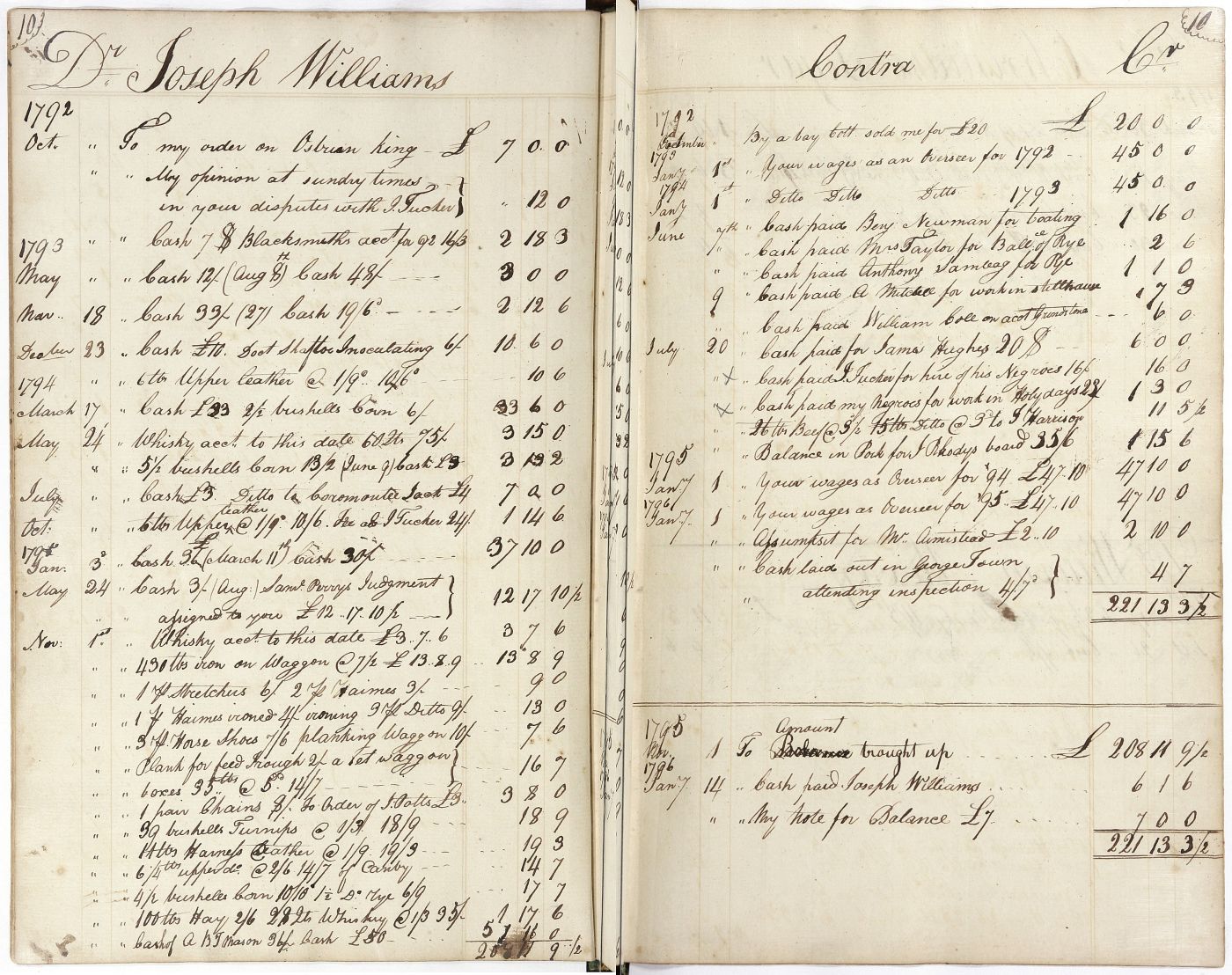Williams, Joseph
Birth
Death
First Name
Last Name
PersonID
Name in Index
Person Biography
Joseph Williams was born in Gwynedd, Pennsylvania, in 1748 to Richard Williams and Margaret Jones Williams. The second oldest of four sons and one daughter, Joseph moved with his parents to the Loudoun County town of Waterford as a young teenager in 1762. Although Richard appears to have been illiterate, records indicate that he amassed 570 taxable acres by 1765, setting himself apart as a landowner from many of the tenant farmers who worked in Loudoun County. By the time he was nineteen, Joseph was working as a hired man for a number of different landowners in the county. He may have even been working as a young overseer, given that many of the landowners who employed him also owned between three to eight enslaved laborers. Joseph’s father was also likely working as an overseer. It is possible that this connection led Mason’s son, Stevens Thomson Mason, to hire Joseph as an overseer at Raspberry Plain from 1792 through 1795.
As one of potentially several overseers at Raspberry Plain, Joseph Williams was responsible for managing a portion of the twenty-five to thirty-nine individuals whom Stevens Thomson Mason held in bondage at the plantation during this period. In addition to supervising enslaved gangs’ fieldwork from sunup to sundown, along with enslaved laborers with more skilled occupations, Williams was likely tasked with maximizing the labor of Mason’s enslaved workforce while also tending to their physical well-being and policing their movements around the plantation. Williams may have also been charged with a wide range of responsibilities related to plantation management, such as caring for livestock, coordinating the transport of the farm’s output to market, maintaining farm buildings and equipment, and overseeing shipments of new supplies to Raspberry Plain.
Mason paid Williams between £45 and £47 and 10 shillings annually for his work as an overseer. Williams’s account indicates that he relied on Mason to secure cash, blacksmithing and medical services, purchases of certain agricultural products (such as corn and whiskey), enslaved labor, and materials for wagons and horses. Furthermore, Mason provided Williams with legal advice in his disputes with John Tucker, another Loudoun landowner. He also loaned Williams money to pay a judgment debt resulting from a lawsuit involving Samuel Perry, a member of Williams’s county militia regiment.
Although deed records suggest that Williams did not own land in Loudoun, county tax records reveal that he nevertheless owned several horses and cattle, along with an enslaved teenager between 1794 and 1795. Like many upwardly mobile overseers from this period, Williams likely worked as an overseer until he had saved enough money to purchase land further west in the state. Census records indicate that by 1810, Joseph Williams was living in southwestern Virginia’s Wythe County with his wife Katherine Edwards Williams, whom he had married in 1774. The move to this more remote location likely enabled him to acquire land. Williams had four sons and three daughters, and was buried in a family plot in Wythe County following his death in 1830.
By Nicole Penn

